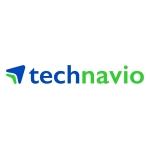Bio-surfactants Market – Trends and Forecasts by Technavio
LONDON–(BUSINESS WIRE)–#BioChemicals–Technavio’s latest report on the global bio-surfactants
market provides an analysis of the most important trends
expected to impact the market outlook from 2017-2021. Technavio
defines an emerging trend as a factor that has the potential to
significantly impact the market and contribute to its growth or decline.
The global bio-surfactant market is growing due to increasing
environmental concerns. Traditional surfactants, based out of petroleum,
are used by most of the manufacturers. They have harmful effects on the
environment as they do not degrade easily and are retained as industrial
wastes in dumping areas. Laws and regulations enforced upon the
manufacturers mandate them to use bio-surfactants instead of
petroleum-based surfactants.
Kshama Upadhyay, a lead analyst from Technavio, specializing in research
on bio-chemicals
and bio-materials sector, says, “Surfactants enable the cleaning
solution to wet the applied surface and thereby facilitate effective
cleaning. Rhamnolipids are natural emulsifiers and surfactants, due to
which they are actively used in the detergent industry. The increasing
demand for bio-surfactants can be attributed to their better performance
over traditional surfactants, rapid change in consumer lifestyle, and
modernization.”
This report is available at a USD 1,000 discount for a limited time
only: View
market snapshot before purchasing
Buy 1 Technavio report and get the second for 50% off. Buy 2
Technavio reports and get the third for free.
The top three emerging trends driving the global bio-surfactants
market according to Technavio research analysts are:
- Potential use of marine origin bio-surfactant for cancer treatment
-
Use of recombinant DNA technology for improved production of
bio-surfactant - Use of rhamnolipids for cleaning diesel particulate filter
Looking for more information on this market? Request
a free sample report
Technavio’s sample reports are free of charge and contain multiple
sections of the report including the market size and forecast, drivers,
challenges, trends, and more.
Potential use of marine origin bio-surfactant for cancer treatment
Cancer is one of the biggest health risk affecting many people around
the world. A lot of research has gone into finding new biomarkers,
drugs, and treatments, but a nontoxic therapy is yet to be found.
Certain bio-surfactants, such as lipopeptides and glycolipids, can be
used as anti-cancer agents.
“Bio-surfactants have a low toxicity level, high efficacy level, and
are biodegradable. These features make them an effective anticancer
agent. The marine bacterium B. circulans DMS-2 produces lipopeptides
with antiproliferative activity against human colon cancer cell line
HCT-15. Thus, bio-surfactants of the marine origin have therapeutic
properties,” according to Kshama.
Use of recombinant DNA technology for improved production of
bio-surfactant
The motive of genetic engineering is to enhance a certain property or
function by changing the genetic material of the organism through
recombinant DNA technology. This is being used to develop a
microorganism that will yield higher amounts of bio-surfactants. This is
being achieved by creating mutant or recombinant strains, which can
yield more and can select a congener of molecules focusing on one
application.
Conventional bio-surfactants have multiple molecules with different
properties, which are separated according to the application but the
cost is very high. Recombinant DNA technology will make it possible to
the custom feedstock to obtain desired properties and yield at a reduced
cost of production.
Use of rhamnolipids for cleaning diesel particulate filter
Diesel particulate filter (DPF) has several functions such as pollution
control, global warming reduction, and improving the performance of
diesel engines. DPF traps particulate matter emitted by the diesel
engine and prevents them from escaping into the atmosphere without
proper treatment.
DPF operates through a complicated process owing to the chemical
composition of the residues which are ash, soot, particulate and organic
matter, unburned and partially combusted hydrocarbon, metal residues,
metallic and non-metallic oxides, lube oil, and coolant contaminations.
The key vendors are as follows:
- Akzo Nobel
- BASF
- Croda International
- Ecover
- Saraya
Browse Related Reports:
-
Global
Bio Polypropylene Market 2017-2021 -
Global
Polyhydroxyalkanoate Market 2017-2021 -
Global
Bio-based Butanol Market 2017-2021
About Technavio
Technavio
is a leading global technology research and advisory company. Their
research and analysis focuses on emerging market trends and provides
actionable insights to help businesses identify market opportunities and
develop effective strategies to optimize their market positions.
With over 500 specialized analysts, Technavio’s report library consists
of more than 10,000 reports and counting, covering 800 technologies,
spanning across 50 countries. Their client base consists of enterprises
of all sizes, including more than 100 Fortune 500 companies. This
growing client base relies on Technavio’s comprehensive coverage,
extensive research, and actionable market insights to identify
opportunities in existing and potential markets and assess their
competitive positions within changing market scenarios.
If you are interested in more information, please contact our media team
at [email protected].
Contacts
Technavio Research
Jesse Maida
Media & Marketing Executive
US:
+1 630 333 9501
UK: +44 208 123 1770
www.technavio.com










